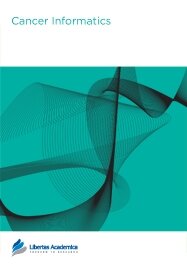

Publication Date: 09 Nov 2014
Type: Review
Journal: Cancer Informatics
Citation: Cancer Informatics 2014:Suppl. 3 81-88
doi: 10.4137/CIN.S14032

Objective: To quantify the impact of International Classification of Disease 10th Revision Clinical Modification (ICD-10-CM) transition in cancer clinical trials by comparing coding accuracy and data discontinuity in backward ICD-10-CM to ICD-9-CM mapping via two tools, and to develop a standard ICD-9-CM and ICD-10-CM bridging methodology for retrospective analyses.
Background: While the transition to ICD-10-CM has been delayed until October 2015, its impact on cancer-related studies utilizing ICD-9-CM diagnoses has been inadequately explored.
Materials and methods: Three high impact journals with broad national and international readerships were reviewed for cancer-related studies utilizing ICD-9-CM diagnoses codes in study design, methods, or results. Forward ICD-9-CM to ICD-10-CM mapping was performing using a translational methodology with the Motif web portal ICD-9-CM conversion tool. Backward mapping from ICD-10-CM to ICD-9-CM was performed using both Centers for Medicare and Medicaid Services (CMS) general equivalence mappings (GEMs) files and the Motif web portal tool. Generated ICD-9-CM codes were compared with the original ICD-9-CM codes to assess data accuracy and discontinuity.
Results: While both methods yielded additional ICD-9-CM codes, the CMS GEMs method provided incomplete coverage with 16 of the original ICD-9-CM codes missing, whereas the Motif web portal method provided complete coverage. Of these 16 codes, 12 ICD-9-CM codes were present in 2010 Illinois Medicaid data, and accounted for 0.52% of patient encounters and 0.35% of total Medicaid reimbursements. Extraneous ICD-9-CM codes from both methods (Centers for Medicare and Medicaid Services general equivalent mapping [CMS GEMs, n = 161; Motif web portal, n = 246]) in excess of original ICD-9-CM codes accounted for 2.1% and 2.3% of total patient encounters and 3.4% and 4.1% of total Medicaid reimbursements from the 2010 Illinois Medicare database.
Discussion: Longitudinal data analyses post-ICD-10-CM transition will require backward ICD-10-CM to ICD-9-CM coding, and data comparison for accuracy. Researchers must be aware that all methods for backward coding are not comparable in yielding original ICD-9-CM codes.
Conclusions: The mandated delay is an opportunity for organizations to better understand areas of financial risk with regards to data management via backward coding. Our methodology is relevant for all healthcare-related coding data, and can be replicated by organizations as a strategy to mitigate financial risk.
PDF (676.01 KB PDF FORMAT)
RIS citation (ENDNOTE, REFERENCE MANAGER, PROCITE, REFWORKS)
BibTex citation (BIBDESK, LATEX)
XML
PMC HTML

This is the first time for us to submit a manuscript to Cancer Informatics. We thank the peer reviewers for their insightful comments, which have improved our manuscript markedly. We were pleased to find that the staff were extremely helpful and kept us informed of the progress of the submission step-by-step. Our experience with Cancer Informatics has been tremendous. Thank you very much!
Facebook Google+ Twitter
Pinterest Tumblr YouTube